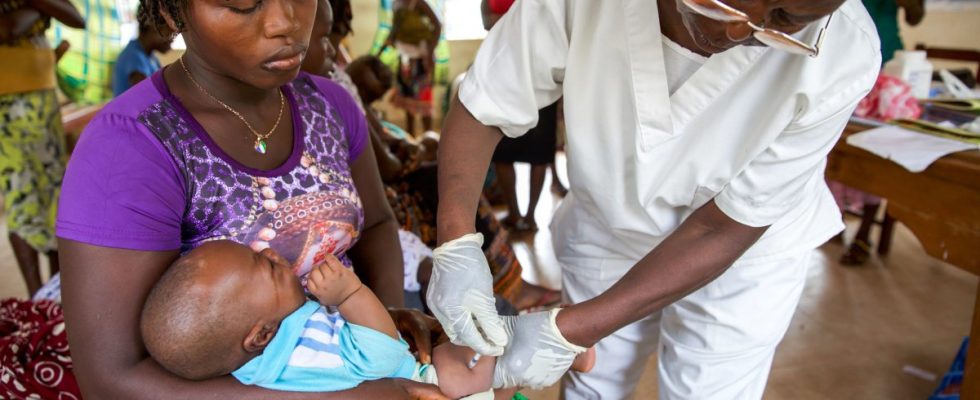/picture alliance, Miro May
Berlin – The global vaccination alliance Gavi and the Global Fund to Fight AIDS, Tuberculosis and Malaria (GFATM, Global Fund) have contributed to a reduction in global mortality in recent years. A representative of the two organizations reported this yesterday to the subcommittee of the Health Committee “Global Health” in the Bundestag.
Since the Global Fund was founded, the mortality rate for the diseases AIDS, tuberculosis and malaria has been reduced by more than half (55 percent), emphasized Johannes Hunger from GFATM. This saved 59 million lives. The fund was launched in 2002 to combat the three diseases.
In 2022, there was also a renewed increase in the number of treatments for tuberculosis, for example. During the pandemic, the number of people treated for tuberculosis fell significantly and rose again from 5.3 million in 2021 to 6.7 million people treated in 2022. “From our point of view, this is a great success and is also thanks to Germany’s commitment,” said Hunger.
Marie-Ange Saraka-Yao, from the global vaccine alliance Gavi, said the organization’s efforts to save around seven million children between 2021 and 2025 are well on track. The alliance helped reduce child mortality in the 17 lowest-income countries. Here too, the pandemic led to a setback. However, due to the structure that had already been set up beforehand, a significantly increased use of vaccines was possible.
The work should also be accelerated in the future. This means that the alliance now has a maximum number of vaccines, which should now be vaccinated worldwide as quickly as possible. This includes, for example, the rollout of vaccines against cervical cancer and malaria. It is also important that around 50 percent of the vaccine portfolio is directed against climate-sensitive diseases, said Saraka-Yao.
The Global Fund’s great purchasing power helps with the procurement of vaccines, Hunger also reported. For example, this made it possible to reduce the purchase price of the drug bedaquiline for use in multi-resistant tuberculosis by half, said Hunger. Saraka-Yao also emphasized the need for economy of scale to be able to negotiate affordable prices for vaccines.
She stressed that it is extraordinary that countries such as Germany are providing a lot of support in the area of global health, but the countries where the vaccines are being used are increasingly committed to using their own financial resources. Most of Gavi’s resources come from donor countries (60 percent). However, 40 percent of the capital invested comes from the states themselves. She assumes that this share will increase in the future.
Another important achievement is a new tool that has changed the manufacturing strategy for Africa: the African Vaccine Manufacturing Accelerator (AVMA). This is based on new innovations, helps to produce more vaccines and overcome bottlenecks, said Saraka-Yao. This could create a fairer world, better vaccine delivery and a better ecosystem.
German medical journal print
aerzteblatt.de
Good communication and information about the vaccines are also important for a high vaccination rate, explained Saraka-Yao. Since the pandemic, there have been difficulties in trusting vaccines. “That didn’t happen in the past. In Africa, people actually believe in immunization,” says Saraka-Yao. Social media also fueled doubts on the African continent during the pandemic.
Despite the efforts and successes achieved so far, Hunger from the Global Fund fears that the health target (Sustainable Development Goals of the United Nations) will be missed by 2030. In particular, global inflation and the issue of resistance pose major challenges. However, Hunger emphasized that we will not give up but will continue to work on achieving the goal.
Part of the goal is to reduce maternal and child mortality and to protect everyone from communicable diseases such as AIDS or tuberculosis but also non-communicable diseases (cancer or diabetes). In addition, everyone around the world should have access to basic health services without falling into financial difficulties.

